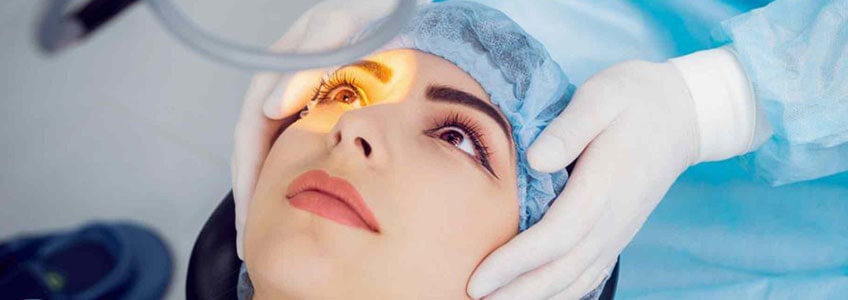How Long Do LASIK Eye Surgery Results Last?
Long-Term LASIK Effects
The effects of LASIK are noticeable within 24 hours of the operation, with final results appearing approximately six months later. While the idea of surgery might seem daunting, the desire to be free of glasses is strong. However, fear of a long and painful postoperative period can be a deterrent.
After the initial 30 to 45 minutes following LASIK surgery, you can go home with a loved one and avoid strenuous physical or mental activity. A 24-hour rest is generally recommended.
The cornea has been clinically reshaped to facilitate precise focusing, leading to an immediate improvement in vision:
- Vision: The incisions made on the surface of the cornea, regardless of the technique used, trigger a healing process that generates new epithelial cells. After LASIK surgery, images are optimally focused. Individuals with hyperopia may experience a significant improvement in their near vision but may still have difficulty seeing far away.
- Pain: During an operation, different sensations can be felt depending on the technique used: burning, tearing, photophobia, dry eyes, and a foreign body sensation. These sensations can vary in intensity and appear approximately 20 to 30 minutes after the operation. In addition, night vision may be blurry and halos may surround lights.
- Therapy: To make the home therapy process more effective and enjoyable, it's important to get into the habit of performing tasks such as instilling antibiotics and anti-inflammatory eye drops, as well as regularly using artificial tears to lubricate them.
- Activity: Facing an operation can be stressful, and it's perfectly normal to feel tired. In these moments, it's better to rest than to work. However, it is possible to read, watch television, or take a shower. However, be careful to avoid washing your hair or putting products in your eyes. For protection, it is advisable to wear sunglasses outdoors:
Don't panic if your vision isn't perfectly clear immediately after LASIK surgery.
When assessing your vision after LASIK surgery, it is essential to be patient. Although you may notice a significant improvement the next day, it is common for your vision to fluctuate for several weeks.
During your post-LASIK treatment, your ophthalmologist will monitor the evolution of your vision for several weeks or even months.
Although not anticipated, it is quite possible that you will experience discomfort driving or performing other visual activities after undergoing LASIK surgery. If so, do not hesitate to discuss it with your ophthalmologist. They may recommend that you wear corrective glasses temporarily until your vision is fully restored and stable.
You had LASIK surgery three months ago, but your vision is still blurry? You may need a revision of the surgery to correct this.
To determine your eligibility for this revision, your ophthalmologist will conduct a new assessment of your corneas using the same methods as for the first LASIK procedure. This will ensure that you are a good candidate before proceeding.
During the evaluation, the ophthalmologist will ensure, among other things, that the cornea has adequate thickness to allow for a possible additional intervention.

To optimize the clarity of your vision if required, it is possible to use glasses if the residual refractive error post-LASIK is too minimal to justify a new laser operation or if you are not a good candidate for LASIK enhancement for other reasons.
For an optimal experience of clarity and comfort, choose eyeglass lenses with an anti-reflective coating. This treatment eliminates annoying reflections and improves visual clarity, especially in low light conditions such as night driving.
Many people report that wearing progressive lenses is highly enjoyable after LASIK surgery, as these invisible multifocal lenses provide clear vision at all distances without the need for additional reading glasses.
It may be wise to opt for high-definition lenses, capable of correcting the highest aberrations, unlike classic prescription glasses.
If, following LASIK surgery, you experience light sensitivity, opt for photochromic lenses that automatically react to sunlight by darkening, for optimal outdoor comfort.
EXPRESS QUOTE
Would you like more information
Your health, our priority.
Request your free quote
Long-Term Patient Satisfaction
Several factors can influence satisfaction with LASIK results:
- The characteristics and health of the cornea;
- Presence of myopia, hyperopia, or astigmatism;
- Magnitude of refractive error and power of prescribed lenses;
- Possible risk of dry eye after LASIK;
- Age;
- Expectations;
While LASIK offers successful correction for cases of high myopia, hyperopia, and astigmatism, young people with mild myopia and astigmatism are generally the most suitable candidates for optimal results.
When it comes to LASIK, expectations can greatly influence the level of post-operative satisfaction. Remember that the goal of LASIK is to reduce the need for glasses by providing acceptable vision without optical correction. However, results may vary from individual to individual.
While some individuals report improved vision after LASIK surgery, compared to wearing glasses or contact lenses, this is not the case for everyone.
Once you have undergone LASIK surgery, you can expect a slight improvement in your vision or a result comparable to that of your glasses.
After LASIK, a small percentage of people may notice that their vision is not as good as it was with glasses before the operation. After vision correction surgery, you should still be able to drive safely and perform other usual daily activities without wearing glasses or contact lenses.